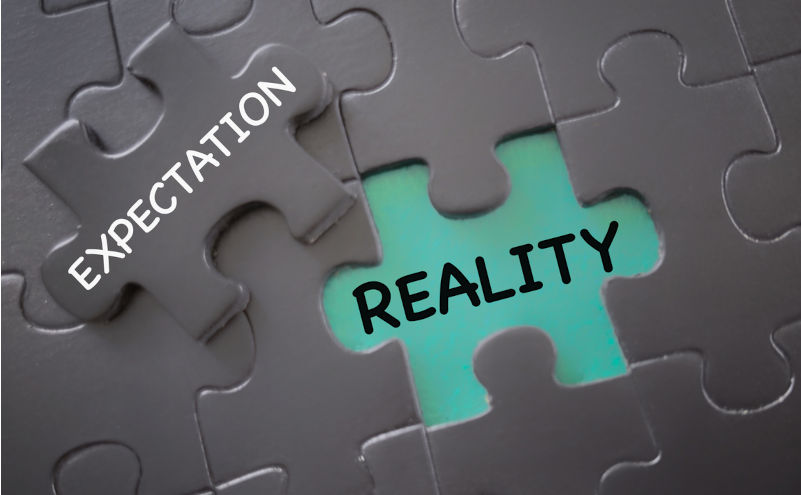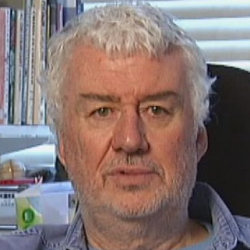To Australia’s 'realists': Gnothi seauton (Know yourself)
April 10, 2025
In international relations, realism is a theory that views world politics as a competition among self-interested states vying for power and security within an anarchic global system, emphasising national interests and the potential for conflict.
In its current form, it is little more than an impoverished bastard child of a tradition lost but hopefully not gone forever.
The philosophical smorgasbord from which it is drawn — abridged here — usually extends from works under the rubric of political realism beginning with the 5th century BCE Athenian general and historian, Thucydides, and then proceeding through to the early 19th century via Niccolo Machiavelli, Thomas Hobbes, Jean-Jacques Rousseau, and Carl von Clausewitz.
It is also infused with a somewhat unacknowledged theological-psychological dimension. To be immersed in International Relations Realism is to be overwhelmed by its Augustinian pessimism — the view of humankind rooted in the philosophy of St Augustine — which emphasises the inherent imperfections and tendency towards evil in human nature, stemming from original sin.
Similarly, the strategic sense found in the writings of the 5th century BCE Chinese strategist, Sun Tzu’s,The Art of War, is not regularly included in the canon.
As befits a strategic theology, and regardless of the challenges made to its premises, the Realist tradition, we should understand, is protects, selects, and excludes.
The carrier of its truths, homo strategicus, regards them as universal and timeless — a philosophy of life — to be affirmed, at least in public and in all policy-making fora. In other words, what Einstein and others failed to do in particle physics — provide a “unified field theory” which would describe all fundamental forces and relationships between elementary particles in terms of a single theoretical framework — Realism has achieved.
The claim is preposterous, but it has not daunted Realism’s hubris. Indeed, as with the concept of the market in neoclassical economics, the constructs of Realism — Balance of Power comes to mind — are elevated to the level of being unimpeachable self-regulating regimes of strategic engineering.
Thus, when the system fails, the fault is not with Realism but, by definition something other than Realism itself. The very notion that Realism might, at its core, be predicated on lunatic premises which could lead to mad conclusions is, ultimately, evaded, despite the irrefutable logic of the causal link. What is the essential logic of nuclear deterrence other than a mutual suicide pact?
Accordingly, to reject Realism is to live in a different theoretical and operational universe to the policy-makers and decision-makers.
Whether they have actually read, and understood more importantly, the sources from which they derive their collective world view is, I would venture, extremely unlikely. Realism for them is a well-fitting garment, well worth the going rate; it is a disposition rather than a philosophy.
At all times, but especially now with the Trumpist revolution in the United States, it is a dangerous affectation which pretends to comprehend the world in general and Australia’s dominant alliance partner.
The revolution to hand is not transient; it is an eruption from the core, harbinger of the un-tied states of America. Its gestation was long and the forces, passions, and interests within it were awaiting only the pressure release valve which Donald Trump and his base were able to effect.
The proposition advanced here is that Australian defence and foreign policy will need to be imbued with a spirit of change which will encompass the imperative to separate from the US in almost all matters strategic.
This would still, intellectually at least, leave space for a close but moderated relationship with Washington; whether Washington would tolerate the attempted revision is another matter entirely. Which is to say highly unlikely.
More specifically, the proposition is that Australia’s Realist faithful must take seriously the faith they claim to adhere to. It proceeds in the hope of creating a spirit of openness where closure has prevailed.
Australian Realism, in this context, and throughout most of Australia’s history must be seen as a mutation: effectively, it is not a perspective deserving of the term “realism”; rather, it might be more accurate to describe it as “what realism- has-become”.
While it is conceded that what is a mutation to some (and hence unfaithful to the original) is a robust, culturally relevant progression to others, it is also the case that Australian Realism is a betrayal of itself. It has simply had nothing, or too little to say about the deeply pathological aspects of the alliance. In other words the mutation, Australian Realism is a standing reproach to, inter alia, the realist principles of John Anderson from whom many Australian realists, historically, acquired a large measure of their philosophical inspiration.
For Anderson, Realism is a description that applies to the general or overall position of “ontological egalitarianism” by which:
… whatever exists — combustion machines, polar ice-caps, wattle leaves, human enterprise; the mental and non-mental; the important and the trivial; the permanent and the ephemeral — is real; that is to say it is a spatial and temporal situation or occurrence that is on the same level of reality as anything that exists.
The problem is that Realism by this criterion has been reduced to a pageant whereby the US is spoken of in terms fit only for Cold War public relations pamphlets (or Julia Gillard’s address to the joint meeting of the US Congress in March 2011).
How, then, to recover what Realism, in its fullness of promise, has to offer? Perhaps a promising start might be made by asking another question: does Australia have a strategic culture of its own? Immediately, this requires an act of self-definition and the distinct possibility that the culture in question is a borrowed one, that, to the extent an Australian strategic culture exists, it has been defined elsewhere.
If this is the case, then an exercise in rejection is long overdue, no matter how favourable and flattering that acquired culture might be. Besides, it makes sense. Anthropologists make the best guides; they know that, ultimately, cultures, in their essence, are rejections of others in favour of the local. From which it follows that, given the pathologies of the alliance, there is no more opportune time than now for such a rupture.
Moreover sanity and reason sanction it. Above all there is that need to establish what R.N. Berki, in his essay, On Political Realism, terms a realism that, in its “ordinary, everyday, sense is initially defined as adequacy to reality… conceived as something inherently ambiguous, problematic, incomplete”.
The concern, then, is with the rehabilitation of Australian international relations realism from first principles, especially in respect of its ability to facilitate criticism and understanding of one of the central tenets of state policy. It is, if that makes the project more appealing, not so much radical as conservative.
As John Garnett observed many years ago, Realism blends belief in evolutionary change with caution as to initiatives. It is state-centric and acknowledges realpolitik as an inescapable feature of the international environment; it is sceptical about the possibilities of permanent peace, suspicious of revolutionary change and distrusting of disarmament and schemes for collective security yet, curiously, it lacks confidence when begged to point in the direction in which progress lies.
As regards human nature, Realism is a minimalist doctrine in terms of expectations, the potentialities of international law and reason. The world — imperfect, corrupt, paradoxical and tragic — is a given for realists. For so many of them, improvement is possible only by a lopsided accommodation with this state of affairs.
Despite these characteristics, classical Realism is not without a somewhat macho-monastic attraction and strength. Berki captures these elements most eloquently in his analogy of the Realist which he borrows from Albert Camus’ “absurd man” – who “prefers his courage and his reasoning” because “the first teaches him to live without appeal and get along with what he has; [while] the second informs him of his limits”.
When enhanced with the notion of “classical temper”, adapted from S.L. Goldberg’s study of James Joyce’s Ulysses, there is no doubting why the realist tradition of the study and practice of politics has acquired a formidable amour propre (self-esteem and vanity):
It accepts the ordinary world of humanity as the primary object of its attention, and endeavours to see and present it steadily and whole. In order to do so it seeks patiently for maturity, detachment, impersonality of judgment and an artistic method, that, while it begins with the local and concrete as its foundation, enables it to penetrate beyond .…
The classical temper displays itself as a responsive openness to life, a firm grasp on the centrally human, a respect for the present reality we all share, an allegiance to the objective, and a mistrust of metaphysical or naturalistic ‘realities’ abstracted from the total complexity of human experience.
While it might seem like a traverse from the sublime to the mundane, it is the case that though Australia’s alliance with the United States has been propounded in putatively realist terms, any reference to the historical record indicates that it was a fraudulent case and one that is now unsustainable if it is acknowledged that Realism demands “courage and reasoning” and a recognition of “limits”.
If it also demands that we accept “the ordinary world of humanity as the primary objection of attention” and that we strive for “maturity, detachment and judgment”, how do we reconcile the pathology of a debauched US with the elevation of that same armed force to the position of protector and guarantor?
More significantly, how do pro-alliance Realists reconcile the preservation and promotion of Australian national interests with the broad interests of such a power?
It is this character of inquiry which, it is suggested, should force current “Realists” to address questions not asked before, and perhaps to force those the same “Realists” to renew (commence?) their acquaintance with the foundations of the tradition.
In doing so, it will almost certainly be the case that the tools of anthropology economics, history, international law, international ethics, political philosophy and sociology will be called into use. If the ideas need to be refurbished so, too, does the data base.
The task is onerous, but exciting for all that. At one side is the danger that, to paraphrase T.S. Eliot (on Poe) we will yield ourselves completely to the idea of the moment – to entertain ideas but not to believe them.
At the other, is the rediscovery and co-ordination of criticism, judgment and prudence and the need to negotiate, continually and warily, Australia’s relationship to the United States, in much the same spirit as George Steiner wrote of the Jews and their hosts in Europe.
This is not to deny the validity of other perspectives in the debate on the alliance — far from it — only to postulate that, until the Realist defence of the alliance becomes self-conscious. self-critical, and authentically Realist, the conditions for addressing the wider vulnerabilities in that defence raised by other perspectives are unlikely to exist.


